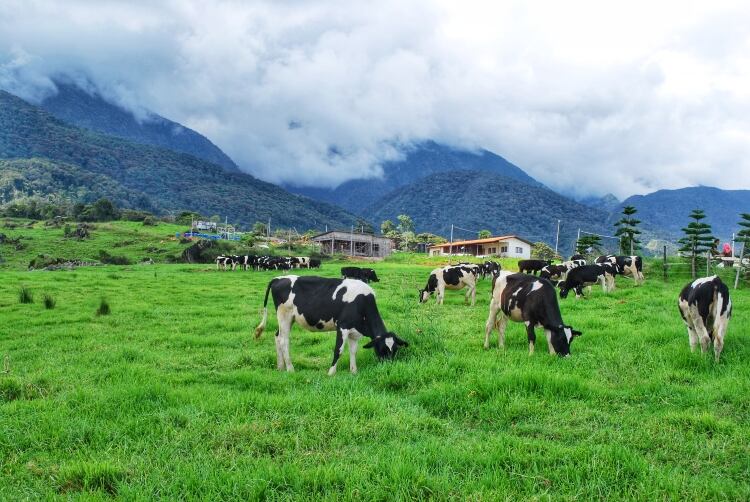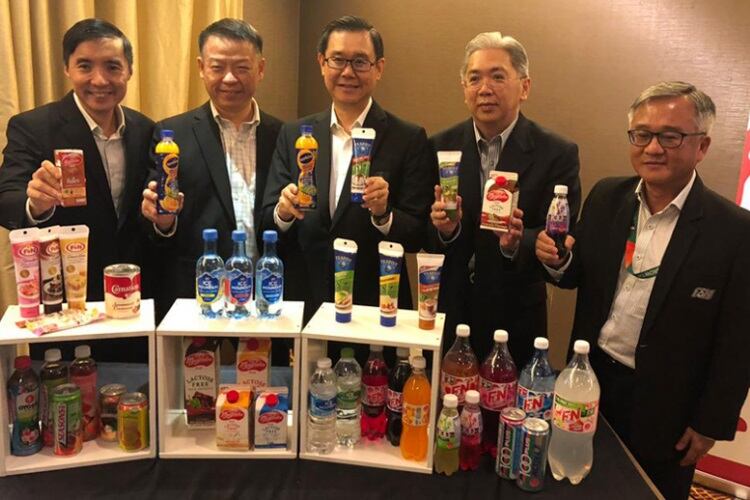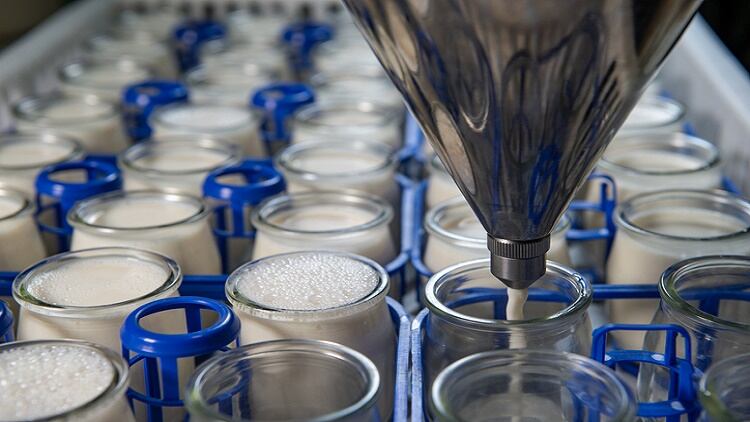FGV, which started its life as the commercial arm of Federal Land Development Authority, known across Malaysia as Felda, is better known as one of the world’s biggest plantation companies and crude palm oil producers.
The MYR10m (US$2.4m) RedAgri move marks FGV’s first entry into the dairy farming business and fresh milk processing. It is also its initial step towards becoming an integrated agri-food business.
According to Haris Fadzilah Hassan, FGV’s chief executive, the RM4.9bn (US$1.2bn) listed company now wants to focus on creating a circular economy centered on palm oil.
“Dairy farming is one of the pillars we have identified for our integrated farming business,” he said.
The others include animal nutrition, paddy farming and cash crops such as MD2 pineapples, which are given to livestock to enhance their flavor, and Cavendish bananas.
"The acquisition of RedAgri enables FGV to create more value from its existing resources and to tap into synergies within the palm-based circular economy,” Haris added.
RedAgri currently processes 4,000 liters of fresh milk a day, which will be increased to 20,000 liters a day by 2022. Most of this increased production capacity is already committed to industrial and commercial customers, FGV said.
FGV also said it will encourage and support its smallholders and low-income farmers to venture into the integrated agri-food sector.
“For the dairy business, this will have the twin impact of increasing the supply of milk for FGV’s processing facilities and also offering a lucrative income source for farmers,” Haris said.
Meanwhile, FGV has ramped up the production of its palm-based animal feed operations, with sales showing a marked 113% increase to 21,600 tonnes in the previous year.
According to FGV, about 60% to 70% of the cost of livestock rearing in Malaysia is from feed, most of which is imported.
The past year has been a busy time for companies moving into the Malaysian dairy market, and especially those that have links with the government.
In October, the Federal Land Consolidation and Rehabilitation Authority, better known as Felcra, tied up with Baladna Food Industries of Qatar to announce plans to set up Malaysia’s biggest dairy farm in the next two years.
In a bid to make the country more self-sufficient in milk production, the two companies aim to produce 50m liters of milk annually by 2021.
The partnership will work together on the development of an anchor farm with a 10,000-head capacity. Satellite farms, run by Felcra workers, will also be developed to supply feedmeal for the dairy cattle, in a bid to vertically integrate.
It is hoped dairy will serve as a new source of revenue for Felcra as it looks to reduce its over-reliance on palm oil and rubber, two of Malaysia’s best-known agricultural commodities.
Malaysia imports about RM3.9bn (US$900m) worth of dairy products a year, as local production amounts to only 67m liters annually, or 61% of current domestic demand, with an additional 40m liters imported.
Within the next two years, the two companies aim to double Malaysia’s current fresh milk production, in line with government’s food security aims.
Meanwhile, rooted in the private sector, animal health solutions provider Rhone Ma Holdings acquired non-controlling interests in three livestock companies earlier this month. The deals, collectively worth MYR7.8m (US$1.9m), were designed to strengthen Rhone Ma’s foothold in the local market.
The group said the purchase of a 49% stake each in One Lazuli, Nor Lazuli Nutrition and Nor Livestock Farm is to expand the group’s reach in the ruminant segment and to participate in the dairy farming business. It will also help it to advance its mission to be a total solutions provider.
“We wish to leverage the ruminant sector in particular through these three partners. We can consolidate a lot of our customers, products and technical services, hoping that with this, it can further grow our revenue,” group managing director Lim Ban Keong told The Edge.
In terms of capital expenditure, Rhone Ma has set aside some RM1.5m for the expansion of a dairy farm, following the acquisition of Nor Livestock Farm.
The group is aiming to have 250 cattle by the end of this year, which would mean two million litres of milk production annually. After that, Rhone Ma hopes to further double milk production to four million litres a year with 500 cattle in the next two years.
Other dairy investments
Elsewhere, Malaysian soft drinks major Fraser & Neave Holdings announced plans to invest MYR650m (US$154m) in the first phase of a vertically integrated dairy farm in Perlis, to back up its goal of becoming one of Southeast Asia’s leading beverage and dairy producers.
When fully complete, the 4,450ha farm will produce 200m liters of fresh milk and up to 5,000 head of livestock annually.
Malaysian dairy production has been growing at a decent lick over recent years as it strives to organize itself.
A national industry development program was implemented by the Agriculture Ministry last year that aims to increase the production of fresh milk by adding another 20m liters through the import of 10,000 pregnant dairy cows within five years. It is also touting the development of three “dairy valleys” with concentrated production in Selangor and Perak states.
With self-sufficiency in dairy production nearing an improbable reality, attention must now be turned to Malaysian milk products, which satisfy just 3.1% of domestic demand.
Experts say to do this, the government must first attract more entrepreneurs to the segment by helping to make capital more available to them.
If this can be achieved, Malaysia will have a full-service and self-sufficient dairy industry—something most people would have laughed out of the milking sheds when the first five-year dairy plan was released in the Seventies.



